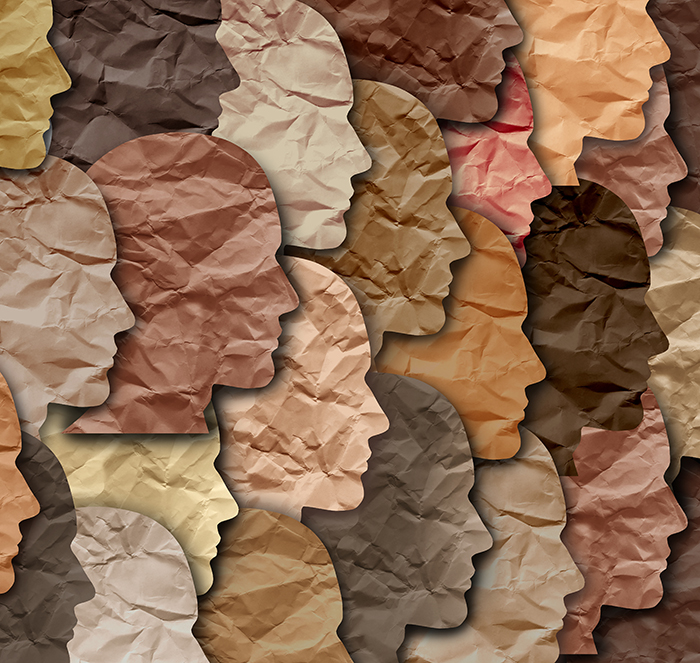Seattle-area families of color are talking about improving remote education.
Here are some of their ideas.
Posted on September 23, 2020
 Education Lab is a Seattle Times project that spotlights promising approaches to persistent challenges in public education. It is produced in partnership with the Solutions Journalism Network and is funded by a grant from the Bill & Melinda Gates Foundation, Amazon and City University of Seattle.
Education Lab is a Seattle Times project that spotlights promising approaches to persistent challenges in public education. It is produced in partnership with the Solutions Journalism Network and is funded by a grant from the Bill & Melinda Gates Foundation, Amazon and City University of Seattle.
Regina Elmi is the executive director of the Somali Parent Education Board. Ann Ishimaru is associate professor of education at the University of Washington. The authors wrote this piece along with 10 other African American, Somali, Latina and Vietnamese parent leaders from the Renton, Federal Way, Kent, Highline and Seattle school districts.
Thousands of families and caregivers in King County are anxious as schools operate online. In recent months, we’ve experienced the devastation of COVID-19 and a summer of reckoning with anti-Black racism sparked by the killings of Ahmaud Arbery, George Floyd, Breonna Taylor and the shooting of Jacob Blake.
We also see racial inequities deepening in our schools. As difficult and heartbreaking as this time has been, many families in BIPOC (Black, Indigenous and people of color) communities have been mobilizing and finding creative ways to support and educate their children.
We challenge educational systems to consider: What might we create together if we stepped outside of what is considered “normal”? Some of our ideas include family co-ops, community educators, intergenerational technology help, and cultural learning outside schools.
Where are these ideas coming from? We are part of a network of families of color across the region who have been meeting and sharing experiences for months online since COVID-19 closed schools.
As the new school year approached, we came together to summarize the conversations we had with other families of color and issue a call to action: Learn from and work with families of color to change how we do school.
Families are keenly aware COVID-19 has hit Black, Indigenous and Latinx communities far harder than others, including children. Even with food and economic insecurities and the necessity for some to continue low-wage jobs that are deemed essential, families of color told us they are prioritizing their children’s health by keeping them learning at home, rather than in school buildings. But too many feel the responsibility for educating their children has fallen to them alone.
One Somali mother said districts should be honest and tell parents it’s their responsibility to educate their child now. Individualistic solutions, such as learning pods, created by the privileged can reinforce inequities. We need collective, systemic solutions. And one size is not going to fit all.
For generations, families of color have often collectively parented and supported their children’s learning to counter the culturally subtractive and racially oppressive schooling many Black, brown and other students of color face.
Our Black children were happier away from school while learning at home this past spring, and we found that to be the same for others as well. Indigenous families shared similar stories. For the first time, Black children have not felt pressured to assimilate; they have not felt judged for not conforming to the cultural expectations that come with in-person schooling. Many have not had to deal with constant racial microaggressions and teacher bias. Families have taught their home languages, values, cultural practices and engaged their youth in protest, activism and healing.
With online learning, every teacher becomes a guest in our homes. We are still trying to live in our homes — there are siblings in various classes, toddlers and babies, multiple generations together, adults working or running home businesses, some struggling with homelessness or poverty, and students with disabilities who need additional support. We do not welcome any racialized judgments of family life and punitive policies that may accompany these “home visits.”
Schools have an opportunity to learn from families about the wisdom and practices that enable our communities to survive and thrive in the face of colonization, anti-Blackness and xenophobia. Right now in King County, Black families are organizing co-ops to tutor or watch each other’s children. Somali children are taking math, Arabic and Somali from teachers in Somalia.
Immigrant families are helping each other with translation and sharing information about learning opportunities outside school. Parents of children with disabilities are taking their children outdoors to feed their learning. Older youth are coaching families on using technology and navigating online platforms. Youth have been organizing to decriminalize their schools and have a say in hiring and reopening decisions.
Learning from families and communities should be the first order of business in schools. Many families we’ve talked to are willing to share their ideas and experiences with educators and decision-makers and ask questions like: Can districts help families develop co-ops like the ones some Black families have formed in districts elsewhere in the country? Could we identify instructional assistants, substitutes or other educators from agencies to work with children online or in community spaces? Can we reimagine more flexible online learning? Is there a way to pay parents, many of whom lost or had to forgo their jobs to stay home with children, for their critical labor?
Districts can’t do this alone. We challenge the organizations and funders in our regional educational ecosystem to take a hard look at how resources are being used. If equity is core to their missions, how could they shift people and financial resources to better support the central role that families are now playing?
Food and technology access are crucial but not sufficient for equity. Listening to BIPOC students and families is a start, but systems in our region can follow the lead of families impacted by educational injustice and get creative. We know it will be complicated and hard, but we owe it to our children — and future generations — because we are not going back to the old normal.
SEE ALSO:
More Race Relations Articles
Sexual Bias Articles
Mental Health Articles
How Drugs and Alcohol Affect the Brain and Body
WA. Counselor Directory: find a therapist near you
How helpful is this web page to you?
(and how can we can improve this page for you?)
not helpful
very helpful
Other Articles
If Seattle police budget is cut in half...
The Future of Policing: As protesters across the country demand sweeping changes to law enforcement, The Seattle Times begins an examination of what that future could look like and the hurdles ahead. Today,... read more
A monstrous breach of the First Amendment
“Congress shall make no law respecting an establishment of religion, or prohibiting the free exercise thereof; or abridging the freedom of speech, or of the press; or the right of people peaceably to a... read more
How history has led to an extraordinary moment
Aaron Dixon has seen a lot in his 71 years. The leader of Seattle’s Black Panther Party in the height of the turbulent 1960s, Dixon lived through the uprisings after the murder of the Rev. Dr. Martin L... read more
Structural racism and systemic change in education
How you can get involved in educational changes
Education Lab: Seattle Times July 19, 2020 Education Lab is a Seattle Times project that spotlights promising approaches to persistent challenges in public education. It is produced in partnership with t... read more





